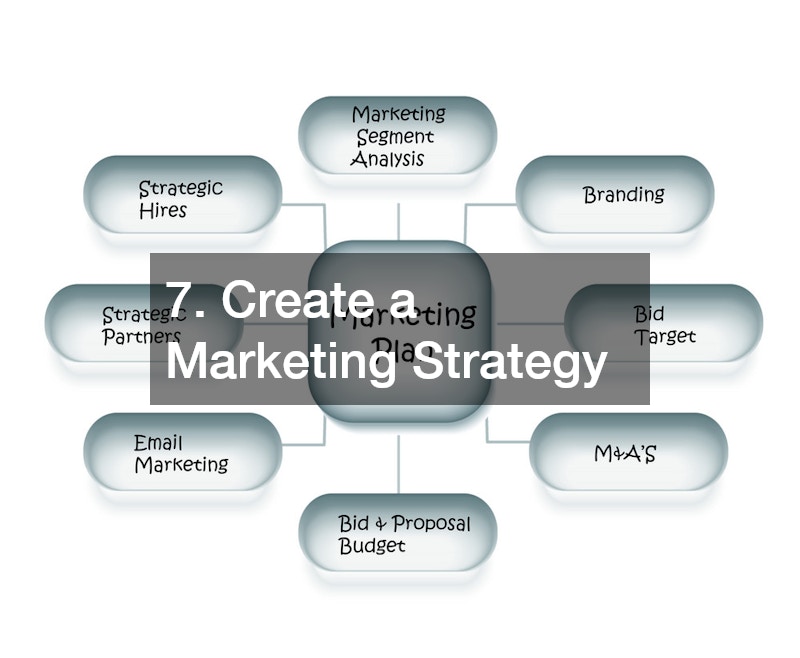Starting Your First Business: Key Steps to Success
Starting a new business can be a challenging and exciting journey, filled with many steps that will lead to long-term success. Every phase of the business venture requires meticulous planning, strategy, and execution. Entrepreneurs should not only concentrate on their goals but also on how to build a solid foundation that will support future growth.
Many businesses fail in the first few years. However, those who follow a structured plan are more likely to thrive. Understanding the steps necessary to launch a business can help entrepreneurs reduce risks and increase their chances of success.
1. Define your business concept
A clear and compelling concept is the first step to any new business venture. Your business concept is the blueprint for your idea – what you want to offer, who it’s aimed at, and why. Your business concept is the driving force behind your venture and helps you to stay focused on your objectives. Undefined concepts can help you clarify your vision for the business and make it easier to communicate to customers, investors, and partners. It should be able to differentiate your company from the competition and provide unique value. This step is crucial because it will set the foundation for everything else.
If you plan to open a company that provides process servers, you should first determine what services you are going to offer and how you will meet the needs of your customers. You can choose to focus on either high-end corporations or small businesses that are looking for cost-effective design solutions. Or you can combine both. Consider how you will differentiate your business in the marketplace, whether it is through unique design, sustainable materials, or a focus on workplace productivity.
2. Create a Comprehensive Business Plan
After your business idea is clearly defined, the next step is to develop a detailed business plan. Your business plan will outline your goals, strategies, and the steps that you will take to reach them. The plan is a guide for your business and will help you make decisions. A good plan will include sections about market research, financial forecasts, operational structures, and marketing strategies. A business plan is essential, not only because it helps you clarify your vision but also because it makes it easier for you to get funding from lenders or investors. A good business plan will also help you stay on track and make necessary adjustments when needed.
If you want to start a wildlife removal business, for example, you should include the services that you will offer in your plan. For example, you might cover humane animal relocation and pest prevention. The plan should include how you will handle the various licensing and regulations that are required in this industry. Market analysis will help you to understand the need for wildlife removals in your area. Financial projections can give you an idea of the expected revenue, startup costs, and profitability timelines.
3. Market Research is Important
Any initial business venture should include thorough research into your target market. Understanding your customers’ needs, wants, and behavior is essential to tailoring products and services to market demand. Market research can provide insights into the demographics, buying habits, and motivations of your target audience, which will help you refine your business strategy. Market research can also give you valuable information about your competitors. This will help you gain an advantage by identifying areas of the market where your company could outperform other businesses. Your research will be more thorough the deeper you go so that you can make better decisions regarding pricing, marketing, and service offerings.
If you want to start a dock-leveling business, for example, you can use market research to identify the types of companies or individuals who need dock-leveling services. These include warehouses, industrial buildings, and marinas. You can establish your company as a provider of solutions by studying the challenges that these clients face, such as uneven docks that impact efficiency or safety. You can also find out what services your competitors offer and at what prices. This will allow you to price your service strategically and differentiate yourself.
4. Establish Your Brand Identity

After you’ve mastered your market, your next step is to create a strong brand. Branding is much more than a logo and tagline. It’s how people perceive your business. Well-crafted branding communicates your vision, values, and mission and helps foster trust and recognition among your target audience. Consistent and cohesive branding can help you stand out from your competitors and make sure that customers remember your company. It is important to develop visual elements, messaging, and a voice that reflects the personality of your company.
In a highly competitive industry, it is crucial to establish a strong identity for your social media business. Create a brand that is appealing to businesses looking to improve their online presence. Consistency across all platforms, whether you choose a creative, fun image or one that is more professional and results driven, will help your business stand out. The visuals of your brand, including logos and colors schemes, should be in line with the message that you wish to convey.
5. Register your business legally
Registering your business is an important step to take as you build the foundation for your first business venture. Registration ensures that your business is compliant with all local, state, and federal regulations. This will protect you from any future legal issues. You may be required to register for permits, licenses or certifications depending on where you are located and what type of business you have. The choice of the right business structure, such as a partnership, LLC, or corporation, will also affect your tax obligations, liability, and the way you manage your business. Assuring compliance with the law from the beginning is a good foundation for business growth.
If you are starting a corporate caterer, for example, registering legally requires that you obtain the required food handling and health licenses in addition to your standard business licenses. Aside from deciding on the structure of your business, you’ll need to consider liability and tax issues. Legal documentation is important to secure contracts with big companies.
6. Secure Startup Financing
Securing startup funding is one of the most important steps to take in a new business venture. Even the best-laid plans for a business may not succeed without sufficient funding. Financing is available from many sources, including personal savings, bank loans, venture capital, or crowdfunding. It is important to calculate how much money is required to cover the initial costs of equipment, marketing, and hiring, as well as operational costs. A solid financial plan will help you attract investors and ensure that your business is able to sustain itself in the early stages.
If you are launching a company to remove trees, you may need financing for specialized equipment such as cranes, chainsaws, and safety gear. These items are necessary in order to provide professional services. You’ll also need to include costs for transportation, employee salaries and insurance, and marketing your business. A detailed financial plan can help you decide the best funding options to meet your needs.
7. Create a Marketing Strategy

After you’ve secured funding, your next step is to develop a marketing strategy. Marketing is vital to any business. It’s the way you bring in and keep customers. A solid marketing strategy will help you reach your audience, increase brand awareness, and boost sales. This includes selecting the best marketing channels, whether they are digital platforms, printed advertising, or in-person promotions. Your strategy should also include the message that you wish to convey, as well as the tone and style of your marketing material. It should also explain how you will differentiate your company from your competitors. It is important to have a well-executed plan for marketing in order to gain traction within your industry.
A targeted marketing campaign is crucial for any Heating Company, particularly during the winter peak season. Digital marketing, such as search engine optimization (SEO), social media advertising, and other digital tools, can help you reach local businesses and homeowners who are looking for heating solutions. You can differentiate yourself by offering seasonal promotions and emergency services.
8. Set Up Financial Management Systems
Financial management is essential to any new business venture. Set up robust financial systems to ensure your business runs smoothly and track expenses and income. This step includes establishing budgets, creating bookkeeping systems, and setting up invoicing, payroll, and tax systems. Understanding your cash flow will help you make informed decisions to keep your business stable. Regular financial analysis can also help identify areas for cost-cutting, efficiency improvements, and growth investments.
A handyman service business, for example, will require a reliable financial management system to manage multiple client projects and expenses. Invoicing accurately and keeping track of the materials used on each job will ensure that your business is profitable while still meeting customer needs. It is important to have systems in place to track employee or contractor hours and pay employees. Financial software automates many of these tasks, giving you time to grow your business.
9. Create a strong online presence
Building a strong presence online is crucial for any new business in today’s digital world. Customers often use the internet to research businesses, read reviews, and find out more about their services before they make a purchase. Professional websites, engaging social media accounts, and an online presence in relevant directories can help you establish your brand and build a connection with your audience. SEO is important to ensure that your website appears high in search engine results. This makes it easier for customers to find you. A strong online presence increases your visibility and establishes credibility. This helps you build trust with potential clients.
If you want to start a solar panel-cleaning company, for example, your online presence can be a great way to attract customers looking for sustainable ways to maintain their solar panels. Your website should include a clear description of your services, testimonials, and easy methods for clients to request quotes or book appointments. Sharing before and after photos of your work can also boost engagement and highlight the effectiveness.
10. Review and adjust your strategy regularly
Even during the initial stages of a business, no strategy is perfect. It is important to regularly evaluate your business plan, your marketing strategy, and your operations in order to stay competitive and meet your goals. You may need to change your strategy as markets change, customer preferences shift, or new competitors appear. You can identify improvement areas and take advantage of new opportunities by regularly reviewing your performance, including financial reports, feedback from customers, and industry trends. Flexible thinking and the ability to adapt to new situations are essential to achieving long-term business success.
A fence company, for example, may need to adjust its products based on the market, changing materials or designs in order to keep up with current trends. It may be necessary to change pricing strategies or introduce new fencing options if a certain type of fence is no longer in demand. This fence company can make informed marketing decisions, improve service, and develop growth strategies by regularly analyzing its business performance.
Utilizing New Business Strategies
To launch a new business, you need to plan carefully, think strategically, and be willing to adapt to the ever-changing conditions of the market. Follow these steps to lay the foundation for your long-term success, from defining a clear concept to establishing a strong presence online and regularly evaluating strategies. Each step is crucial, as it helps you launch your new business and navigate the challenges of running a startup.

